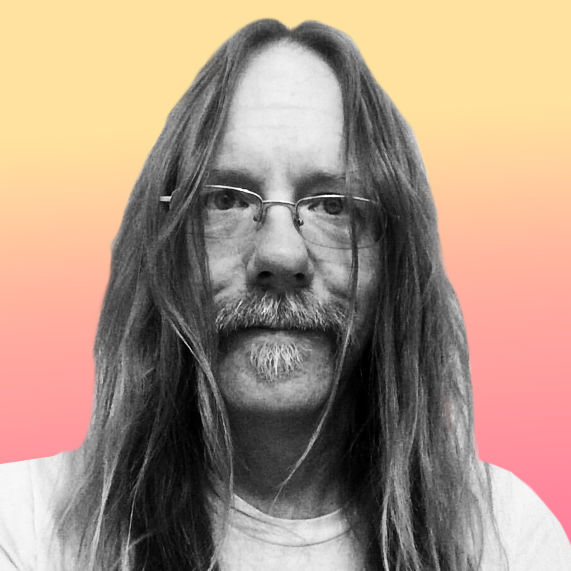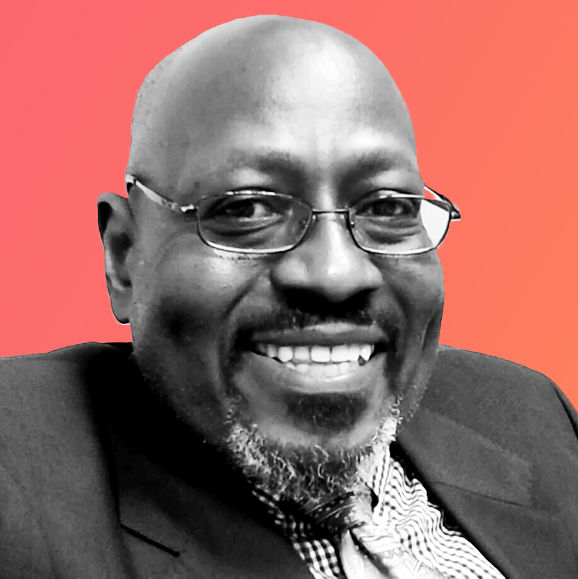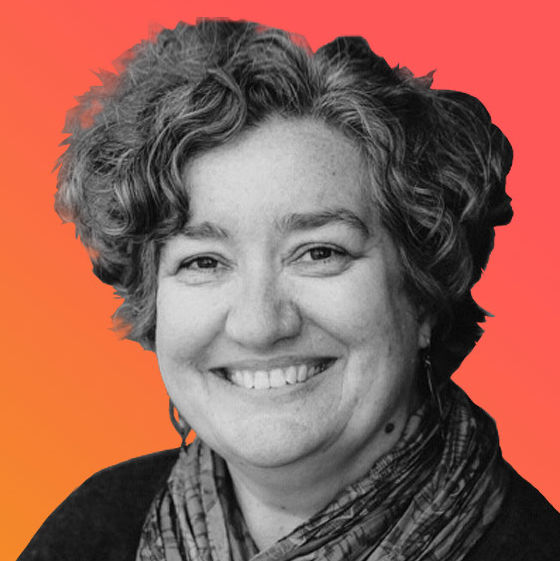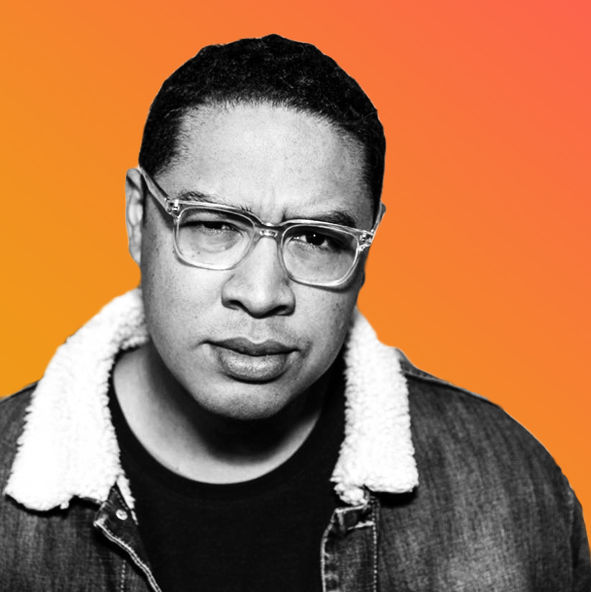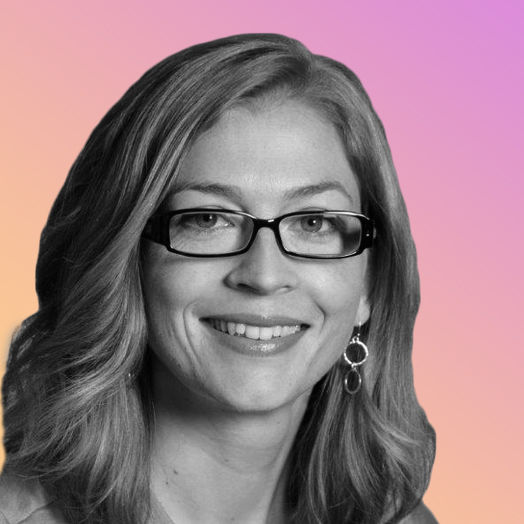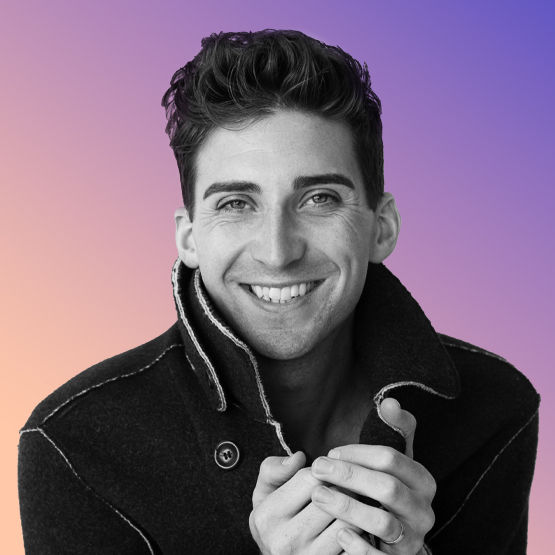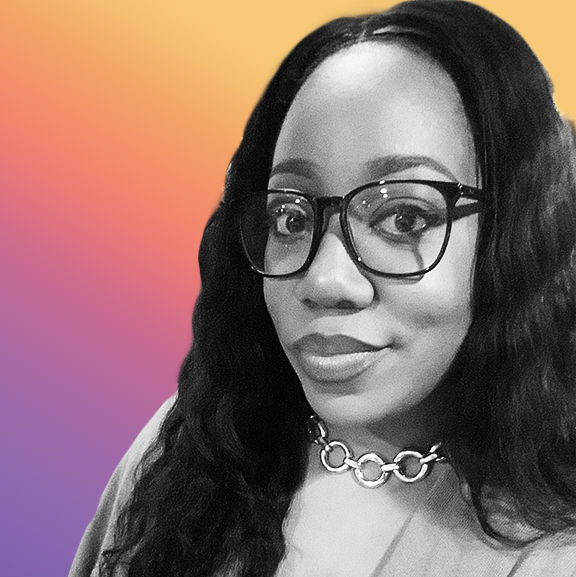A Portland-Raised Podcaster Talks Hunkering Down with Her Parents
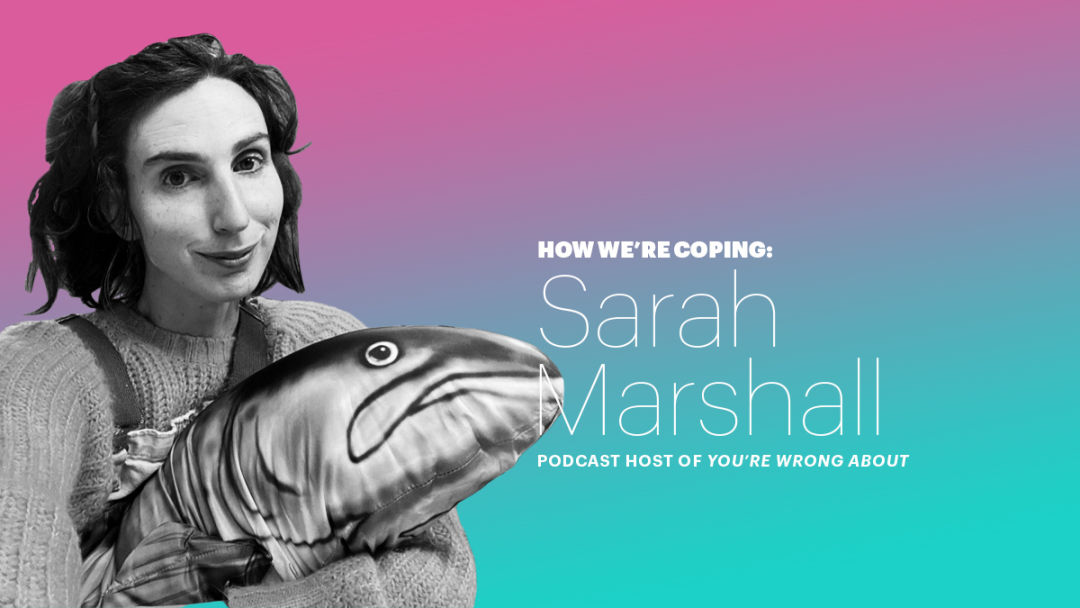
Journalist and podcast host Sarah Marshall (pictured with beloved fish friend).
Image: Courtesy Sarah Marshall and Brian Breneman
Hunkered down on Sauvie Island lies one of America’s great podcasters. That’s not just an opinion: Time magazine listed You’re Wrong About as their number two pick for 2019, and with a growing, devoted fanbase, journalist Sarah Marshall is bona fide. Her podcast, co-hosted with fellow journalist Michael Hobbes, has become a fan favorite for its deep dives into stories about historically maligned women that were set up to fail by society, beauty expectations, and sometimes the entire media. There’s the tale of Tonya Harding, the infamous wardrobe malfunction of Janet Jackson, even an episode about the time Dan Quayle went after the character Murphy Brown.
Not many folks know is Marshall is an Oregonian. Like a "went to Oregon Episcopal School, got her undergrad and MFA and then started teaching at Portland State University" kind of Oregonian. When the pandemic hit, Marshall returned home from a stint in Alaska to quarantine with her parents and churn out deep-dive episodes on Jessica Simpson’s autobiography from her childhood bedroom on Sauvie Island. We talked to her back in May about how all of that felt.
Millennials Vs. Boomers
“It's very funny, I'm sitting here right now in what was my bedroom in high school. And I just took a nap before our call with one of my own stuffed animals. The broader thing that we're seeing happening between millennials and their Boomer parents, and I certainly experienced with my parents, was when I came home in early March, my parents were kind of like, 'Well, we have to live our lives.' Let's keep going to the store, kind of unnecessarily, and slowly browsing for things, and stuff like that. And I was like no. I feel like I got home, and I wasn't conscious that I was doing this at the time but I am aware now I was like, 'Mom, I don't think you're taking this seriously enough, let's watch Outbreak.' When she wanted to go to Fred Meyer and really didn't need to, I read her that passage in [Stephen King's post-apocalyptic book] The Stand, where we watch the superflu being transmitted between people who are eating at the same restaurant or passing each other in a hotel corridor, and watching the superflu spread across America freaked her out. She started listening to me after a couple of days. And so I've kind of quarantined my parents by telling them that they didn't understand how scary things were out there, but I did, which is a very parental thing to do in my experience.
The Podcast Creates Structure
“What I figured out is something that's hard for me as a writer is structure, and that by making the podcast and talking about subject matter there that I intend to write about, I am able to kind of unearth the structure that I then can use in my writing. I'm figuring out basically how to do podcast work in a way that supports writing and vice versa. And that's been really interesting to do, especially now because we're doing a lot more episodes than previously. I feel sad now, almost, unless I'm working—that's not true, there's a lot of plant-based joy in my life—but it is only when I'm working that I'm so focused that I'm not thinking about what's going on at all. And that's the only kind of thing that I do that takes that degree of concentrated focus. We've been making more shows. It's allegedly to help people, but I think really because we're both sad and scared and feel better when we're working.
More People Should Feel Confident About Podcasting, Not Just White Guys
“I was just talking to a friend earlier, and he was joking about the way white men act about podcasts, and I think I essentially act like a white man about podcasts. I am overly confident if I have a thought about "Would this be interesting to people? Only one way to find out," you know. It's just the sort of innocent confidence that comes with having some faith in the idea that if you share something, there will be someone out there who finds that interesting or of some kind of value. I'm still trying to untangle whether that's like unearned arrogance on the part of some members of society or just the way that all people should feel all the time, in which case I'm being feminist, and not just entitled. I think it's both. I think I'm luckily entitled to believe that my opinions are important, and I want more people to feel that way. I want more entitlement.
Her Students Got a Taste of the You're Wrong About Theme
“You can't really spend 10 weeks teaching people to cite MLA. You really can't. In my experience students come into a writing class and they're like, "I've been told that I need to do this, and I don't know what it involves but I think it's like grammar and how to cite stuff." And I'm like, well, we're going to cover that in the first week, and then we have nine weeks, so we're going to do the human condition. Trying to talk about how we live in this world of media, we're bombarded with information, we as human beings find comfort in narratives. I remember many lessons had something to do with the theme of don't judge things in the media too quickly and harshly, it's more complicated than that probably. Because I just did not know how to stretch citation into that many weeks.
On Her Relationship with Portland
“I spent most of my adult life here, so there's still a lot of connections that I have here and people that I like to see. I always felt like Portland and I were friends who used to see each other every day and then you're like, this isn't healthy, let's try and get some distance and develop our own identities. But then let's still get together and see how everyone's doing. I feel like your hometown is the place where you get annoyed when they change something even if it was something you were indifferent to or explicitly disliked. Pattie's Home Plate Cafe in St. Johns went out of business and I'm sad about that and whenever I went there, I was like this is a confusing business, but they were just there for a really long time. And now they’re not and I grieve that.
My association with coming to Portland is this is the city where you can't go a few blocks in any direction without being reminded of a landmark from your life or the home of someone you know or something like that. There's no place for me that is as rich in connection as it is here. It's an extremely funny thing to be in your hometown but you can't see anyone while you're here. But it doesn't matter, you know, because you learn something about yourself by looking at where you go when the chips are down.”

